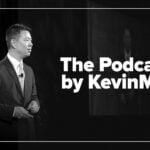I have been fortunate to practice in several areas of medicine in my career. This has led me to triple board certification in family medicine, palliative medicine, and addiction medicine. I speak Spanish fluently, have a spotless record, and have dedicated my career to caring for underserved patients.
Despite this, after years of applying to prestigious health systems in a major city, I’ve never once been contacted for an interview in addiction medicine, which is my current main focus. Not even for lower-tier clinical positions.
I’m not underqualified. These are jobs in high-need specialties where institutions claim they’re struggling to hire. Yet the roles consistently go to other physicians—often with fewer credentials and less experience. Many of them trained in academic institutions, yes, but many didn’t. They simply fit the image of who these systems expect to represent them.
Meanwhile, someone like me—Latino, multilingual, with real-world addiction medicine experience—is ghosted… and I am not the only one.
The quiet sorting of who belongs
Academic hospitals in this city like to see themselves as progressive and inclusive. But if you’re a Latino physician, especially an IMG or someone who trained outside the elite academic orbit, you’re quietly filtered into a very narrow set of roles: lower-paid, high-volume, “mission-driven” jobs in community clinics or public hospitals.
If you aim for leadership, academic appointments, or even better-resourced outpatient settings, you’ll hear things like, “You’re needed in the community,” or “You can make more of a difference there.” I’ve been told this directly.
It’s presented as a compliment, but it isn’t. It’s a boundary. It’s the unspoken assumption that my place is not in decision-making spaces, or in affluent neighborhoods, or within systems that equate prestige with whiteness and cultural neutrality.
At the same time, other physicians—often those who more closely match the unspoken expectations of elite institutions—move quickly into roles with visibility, voice, and influence. This isn’t about individual colleagues. It’s about a system that has created categories of professional belonging: those seen as “universal,” and those seen as only relevant to the underserved.
A pattern that doesn’t change
One health system is a case in point. In recent years, employees filed a federal discrimination lawsuit alleging racism, sexism, and retaliation. An internal report later revealed that many physicians of color within the institution felt marginalized, underpromoted, and excluded from advancement.
I’ve applied multiple times to positions at this institution—clinical, academic, addiction-focused. These are roles I’m objectively qualified for, and in areas where the overdose crisis is spiraling. Still, I’ve never received a reply. Not even a form rejection.
Meanwhile, physicians with fewer credentials move into those same roles. The system claims to be committed to equity. But the results speak for themselves.
Addiction medicine and the geography of bias
The bias doesn’t stop at hiring. It also affects where care is offered—and who gets access to what kind of treatment.
Methadone clinics and MAT programs are still overwhelmingly placed in low-income, mostly Black and Latino neighborhoods. These are the same areas where hospitals send their “community outreach” programs and where physicians of color are told they “belong.”
But quietly, more prestigious hospital systems have begun opening well-resourced outpatient addiction programs in wealthier, whiter parts of the city. These clinics have shorter wait times, more integrated care, and more funding per patient.
The patients are different. The signage is subtler. The architecture says, “You’re welcome here.” These programs don’t replace the ones in historically underserved neighborhoods—but they do send a message: Some people with addiction get cutting-edge, discreet care. Others get overworked clinics in neighborhoods the city neglects.
It’s the same dynamic we see in physician hiring—just turned outward.
Tired doesn’t mean bitter—it means aware.
None of this is about personal bitterness. I’ve built a meaningful career in addiction medicine. I’ve worked in jails, housing shelters, mobile clinics, and community health centers. I’ve seen how powerful it is when patients connect with someone who understands their culture and language—never as a checkbox, but as a shared experience.
But I’ve also seen doors stay closed for years—for me and for many of my colleagues of color. I’ve seen what gets rewarded, and what doesn’t.
And when the people closing those doors insist they’re committed to equity, inclusion, and public health—well, that’s when silence becomes its own form of dishonesty.
We’re told to go where we’re “most needed,” but that phrase has become a convenient way to keep us out of spaces with power, funding, and recognition.
After 15 years, I’m still proud of the work I’ve done. But I’m also tired of pretending the barriers aren’t real.
They are. And they’re long overdue for dismantling.
Carlos N. Hernandez-Torres is a family medicine and addiction medicine physician.




















![Stopping medication requires as much skill as starting it [PODCAST]](https://kevinmd.com/wp-content/uploads/The-Podcast-by-KevinMD-WideScreen-3000-px-4-190x100.jpg)
![Weaponizing food allergies in entertainment endangers lives [PODCAST]](https://kevinmd.com/wp-content/uploads/The-Podcast-by-KevinMD-WideScreen-3000-px-3-190x100.jpg)


![AI censorship threatens the lifeline of caregiver support [PODCAST]](https://kevinmd.com/wp-content/uploads/Design-2-190x100.jpg)
